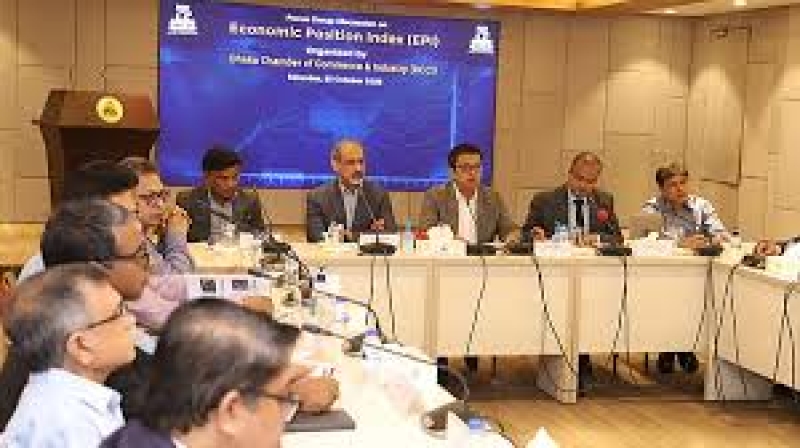- Dhaka’s Per Capita Income Rises to USD 5,163 |
- DSE turnover dips 18% despite weekly gains in key indices |
- 65 Nations Sign UN Treaty to Combat Cybercrime Globally |
- Dhaka’s air quality ‘unhealthy’ 5th worst in world Saturday |
- Dhaka’s air recorded unhealthy on Friday morning |
Dhaka’s Per Capita Income Rises to USD 5,163

Dhaka district’s per capita income has reached USD 5,163 — nearly double the national average of USD 2,820, according to data presented at a discussion on the Economic Position Index (EPI) held at the Dhaka Chamber of Commerce and Industry (DCCI) on Saturday.
Speakers said the figure was estimated using the Bangladesh Bureau of Statistics’ district-level GDP data, adjusted for investment, consumption, trade, and population growth.
DCCI President Taskeen Ahmed said the EPI aims to provide a clearer picture of the country’s economic performance beyond traditional indicators such as GDP or the Ease of Doing Business Index. Initially focusing on Dhaka, the index will later be expanded nationwide.
According to DCCI, Dhaka contributes about 46 per cent of Bangladesh’s total GDP, accounts for 40 per cent of national employment, and houses 32 per cent of the urban population. The district is also home to more than 700 listed companies and generates over 40 per cent of the country’s exports.
The EPI, designed to be published quarterly, will track trends in production, sales, exports, investment, and employment across key sectors including garments, textiles, trade, housing, transport, and banking.
Based on preliminary data, Dhaka’s economy scored 0.80 on the index in the October–December 2024 quarter, indicating strong momentum following a slowdown in the previous quarter.
Economists and officials at the event praised the initiative but suggested that the EPI should eventually be published monthly and aligned with global standards to better reflect real-time changes in Bangladesh’s economy.

